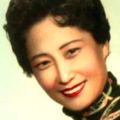Chin Tsi-Ang (February 22, 1908 – October 15, 2007), also romanized as Qian Siying, was one of the earliest martial arts actors of Chinese cinema and its first female star. She debuted in South China Dream in 1925 at the age of 17. Chin's supporting roles in Langhua Movie Studio's successful first three movies launched what would become a long ...
more
Chin Tsi-Ang (February 22, 1908 – October 15, 2007), also romanized as Qian Siying, was one of the earliest martial arts actors of Chinese cinema and its first female star. She debuted in South China Dream in 1925 at the age of 17. Chin's supporting roles in Langhua Movie Studio's successful first three movies launched what would become a long movie career. In 1928 she joined the Fudan Film Company, her first role for that studio being the female lead in The Swallow Heroine, after which she starred in three more for Fudan the following year. In 1930 she moved up a level to the Great Wall Film Company, making what would become her representative work, Southern Heroine, directed by Yang Xiaozhong. Chin's performance impressed audiences in a film that came out just as Shanghai studios discovered the potential of marketing their product to Southeast Asia's Chinese community; Chin's emerging popularity amongst this group brought a steady stream of theater owners to Shanghai to buy copies of her films, regardless of the cost. She went on to make nine more action films for Great Wall and other studios, and since some of these were multi-parters, the actual number totaled about twice that. The last of these was released in 1931, by which time the fervor for martial arts movies had cooled, so Chin moved into other genres, including sound films. Having become a star in Shanghai, Chin and her husband, Hung Chung-Ho, moved to Hong Kong. While there, they formed the Sanxing Film Company, which specialized in wuxia and produced the first Fong Sai-Yuk film in 1938. The company continued in business until 1963, when the Hong Kong government requisitioned its properties. Chin's husband died not long afterwards, following which she felt the urge to resume making movies, but when the matter of her age (now 53) came up, she replied that she just wanted to make movies again, and would be happy to take "green leaf" roles (bit parts or extras). She specialized in playing women her own age, often the mother or grandmother of a lead character. In this second stage of her career, she worked in more than 180 theatrical films over five decades, one of the more recent and well-known being Wong Kar Wai's In the Mood for Love at age 92.
close
